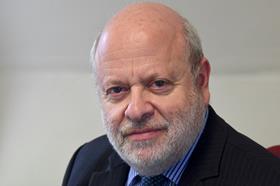Light the blue touch-paper and withdraw because here is a polarising question. Were the Just Stop Oil activists who were recently sentenced to four and five years in prison justly or unjustly convicted and sentenced?

Each part of the case is designed to divide opinion and raise blood pressure. In brief, they were convicted of the offence of conspiracy intentionally to cause a public nuisance, based on a plan to disrupt traffic on the M25 by means of protesters climbing up gantries. There was subsequent disruption to the motorway on four successive days in November 2022 involving 45 protesters.
In his sentencing remarks the judge cited some of the evidence given at trial of the consequences of the disruption: 50,856 hours of delay to road users; 708,523 vehicles affected; economic cost of £769,966; more than £1m cost to the Metropolitan Police. He also cited some of the human consequences: missed flights and funerals; students delayed for mock exams; youngsters with special needs delayed; an urgent medical appointment missed; workers late and so unpaid for part of the day. The judge recognised that the planning was for a non-violent event.
The police found out about the intended protests because a Sun journalist penetrated the Zoom planning meeting under a false name, recorded the discussion and sent it to the police.
The UN became involved, through its special rapporteur on environmental defenders under the Aarhus Convention (the leading international agreement on environmental democracy, to which the UK is a party). The rapporteur, Michel Forst, pointed out that article 3(8) of the convention obliges signatories to ‘ensure that persons exercising their rights in conformity with the convention are not penalised, persecuted or harassed in any way for their involvement’, which ‘includes persons engaging in peaceful environmental protest’.
He intervened on behalf of one of the accused, Daniel Shaw: ‘I have been informed that Mr Shaw may reasonably expect to face a prison sentence of up to two years (or more)’ – he was eventually sentenced to four years – ‘for, in essence, his participation in a Zoom call to discuss a proposed peaceful environmental protest. The imposition of such sanction is not only appalling but may also violate the United Kingdom’s obligations under international law.’
When he heard about the actual sentence, Forst called it ‘punitive and repressive … really shocking … not acceptable in a democracy like the UK’.
The UN special rapporteur had declared in advance that he intended to attend part of the trial as an observer. When he visited, a newspaper reported that ‘he witnessed three of the five defendants being arrested in court and dragged to the cells, protesters outside attempting to warn jurors they were not hearing the full case and a judge desperately trying to maintain control over his courtroom’.
Much of the courtroom turmoil arose because the judge ruled that information about climate breakdown could not be entered into evidence and could only be referred to by defendants briefly as the ‘political and philosophical beliefs’ that motivated them. He would tell the jury such beliefs were in any case irrelevant to their deliberations. In the middle of the trial, however, four ‘facts not in dispute’ relating to the climate crisis were read into the court record, including that the climate crisis was an existential threat to humanity and that global heating above 1.5°C would have catastrophic consequences.
The defendants were determined, though, to let the jury know that what they considered to be important contextual evidence was being kept from them, and so they resisted the judge’s ruling in court. There were also protests outside the court with protesters holding signs saying ‘Jurors deserve to hear the whole truth’ and ‘The right of juries to give their verdict according to their convictions’ (meaning ‘conscience’). When the jury retired to consider their verdict, police had been called into court seven times, four of the five defendants had been remanded to prison, and 11 others were facing contempt of court proceedings for protests outside the courtroom.
Responses have been predictably divided. Some say the convictions represent a severe limitation on the right to peaceful protest; serious criminals convicted for robbery, drug crime and violence are sentenced to less; the protesters’ crime was drawing attention to an agreed existential threat to humanity; the prisons are full and prisoners being let out early, so why send peaceful protesters to jail?
On the other side, people say significant harm can be caused to victims without there being violence; and deterrence is an important factor (mentioned by the judge in his sentencing, since the defendants had one or usually more related previous convictions).
Forst said that climate activists elsewhere are facing persecution, but the position is the most acute here.
The government has refused to intervene, but this issue will not go away. The treatment of peaceful climate protest is another headache in its in-tray.
Jonathan Goldsmith is Law Society Council member for EU & International, chair of the Law Society’s Policy & Regulatory Affairs Committee and a member of its board. All views expressed are personal and are not made in his capacity as a Law Society Council member, nor on behalf of the Law Society
This article is now closed for comment.































11 Readers' comments